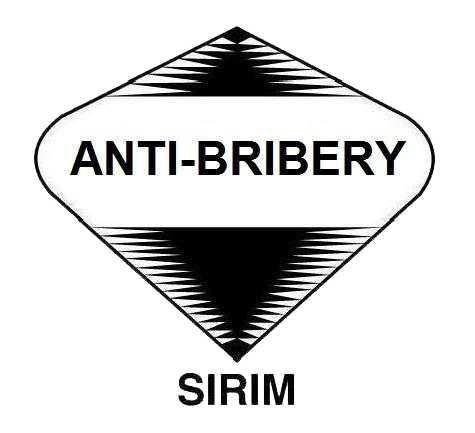Assessment
Assessment
A student’s performance in a subject is reflected by the grade received.
Table 1 : Grade and Point Value for courses other than Industrial Training
Table 2 : Grade and Point Value for Industrial Training
PASSING GRADE
The general passing grade in all subjects is D and above except for Industrial Training and Co-Curiculum. Meanwhile, the passing grade for all Regulatory Compulsory (Mata Pelajaran Umum) subjects is Grade C.
However, the University, with the endorsement of the Senate, allows subjects to have different passing grade as per required by the programme or the professional body or the certification board.
Table 1 : Grade and Point Value for courses other than Industrial Training
| Mark | Grade | Point Value | Status |
| 80 – 100 75 – 79 | A A- | 4.00 3.67 | PASS |
| 70 – 74 65 – 69 60 – 64 | B+ B B- | 3.33 3.00 2.67 | |
| 55 – 59 50 – 54 45 – 49 40 – 44 | C+ C C- D | 2.33 2.00 1.67 1.00 | |
| 0 – 39 | F | 0.00 | FAIL |
Table 2 : Grade and Point Value for Industrial Training
| Mark | Grade | Point Value | Status |
| 80 – 100 | M | Merit | Pass |
| 50 – 79 | S | Satisfactory | Pass |
| 0 – 49 | F | Fail | Fail |
GRADING SCHEME FOR UniKL MIIT
Table 1 : Grade and Point Value for MQA, Non Licence and Elective Subject
| Mark | Grade | Point Value | Status |
| 80 – 100 75 – 79 | A A- | 4.00 3.67 | Pass |
| 70 – 74 65 – 69 60 – 64 | B+ B B- | 3.33 3.00 2.67 | Pass |
| 55 – 59 50 – 54 | C+ C | 2.33 2.00 | Pass |
| 0 – 49 | F | 0.00 | Fail |
Table 2 : Grade and Point Value for DCA Part 66 Subjects
| Mark | Grade | Point Value | Status |
| 80 – 100 75 – 79 | A A- | 4.00 3.67 | Pass |
| 70 – 74 65 – 69 60 – 64 | B+ B B- | 3.33 3.00 2.67 | Fail |
| 55 – 59 50 – 54 | C+ C | 2.33 2.00 | Fail |
| 0 – 49 | F | 0.00 | Fail |
Table 3 : Grade and Point Value for Technical English ( Diploma Only )
Mark | Grade | Point Value | Status |
| 80 – 100 75 – 79 | A A- | 4.00 3.67 | Pass |
| 70 – 74 65 – 69 60 – 64 | B+ B B- | 3.33 3.00 2.67 | Pass |
| 55 – 59 50 – 54 45 – 49 40 – 44 | C+ C C- D | 2.33 2.00 1.67 1.00 | Fail |
| 0 – 39 | F | 0.00 | Fail |
GRADE POINT AVERAGE (GPA)
The Grade Point Average (GPA) is defined as the total grade point received by a student in a semester divided by the number of credit hours/ credit counted in that particular semester.
Semester Grade Point
Total Credit Hours / Credit calculated for that semester
CUMULATIVE GRADE POINT AVERAGE (CGPA)
The Cumulative Grade Point Average (CGPA) is defined as the sum of all the semesters’ grade points divided by the total credit hours counted for all semesters in which the student had registered for.
Total Semester Grade Points for All Semester
Total Credit Hours/ Credit calculated for all semesters
ACADEMIC STANDING for UniKL MIIT
- Students’ academic performance and standing for UnIKL MIIT are evaluated using the Grade “Pass” or “Fail”.
- The term “Pass” is given to students with pass all the subjects taken.
- The term “Fail” is given to students who fail any of the subject(s) taken in the said semester.
- If the student fails 5 or more Licensing subjects in a semester, students are required to repeat the same semester.
If the student fails the repeat semester, Failed and Out (FO) status will be given to the student
Re-Sit to Graduate
A final semester student may apply to re-sit maximum of two failed courses taken at the last semester of his study or failed at the semester just before his industrial training. The student must be in good standing and his coursework marks for the failed course(s) must be = 40% of his total coursework marks. However, if he fails the re-sit to graduate exam, the student will need to repeat the course.
Supplementary
Supplementary Paper is unique to UniKL RCMP only in order to accommodate the clinical training of the students. Students who failed a course are allowed to re-sit immediately after results announcements.
Academic Offences is actions which would have the effect of unfairly promoting or enhancing one’s academic standing community at an Institute of University Kuala Lumpur.
There are two categories of academic offences.
a.Academic Misconducts
b.Examination Misconducts
Academic Misconduct
The Academic Misconducts are listed below, however the list is not exhaustive. i.Plagiarism – an act or instance or closely imitating the language and thoughts of another author without authorization and the representation of that author’s work as one’s own, as by not crediting the original author. ii.Collusion – when a student or students collaborate with another student or students as an individual or group with the intention of cheating to gain mark or grade to which they are not entitled. iii.Fraud and Forgery – commission of fraud and forgery include but not limited to falsification of University academic records. iv.Abuse of Resources – Infringing upon the right of other students to fair and equal access to any University library materials and comparable or related academic resources.
Examination Misconducts
Examination misconducts is any attempt by a student to give or obtain assistance in a formal academic assessment exercise without the knowledge of the organizer. Examination misconduct may include possessing any unauthorized materials or devices, giving or receiving or in possession of materials related to the assessment, referring and using prohibited references and communicating with other exam candidates. If a student is found to have committed examination misconducts, he/she will be suspended or terminated.






